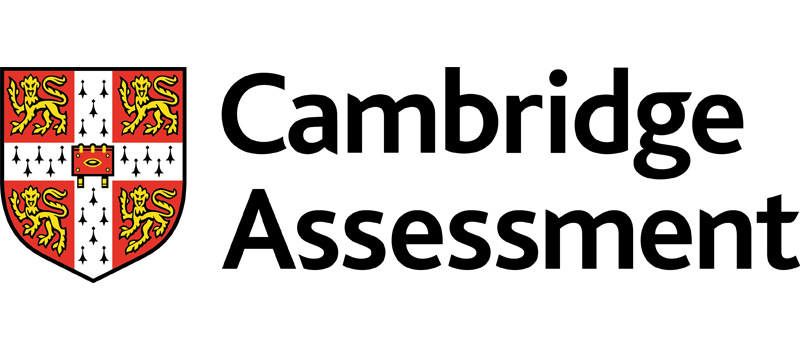
Essential Skills for a Happiness and Employee Engagement Specialist
Course ID: 2510207101348EGI
Course Dates : 20/10/25 Course Duration : 5 Studying Day/s Course Location: Dubai, UAE
Language: Bilingual
Course Category: Professional and CPD Training Programs
Course Subcategories: Human Resources and Talent Development
Course Certified By: * Projacs Academy
* Professional Training and CPD Programs
Certification Will Be Issued From :
KSA
Course Fees: £2,940.22
Vat Not Included in the price. VAT may vary depending on the country where the course or workshop is held.
Click to Pay
Date has passed please contact us Sales@e-s-hub.com
Course Information
Introduction
The modern workplace is evolving, with organizations increasingly recognizing that employee happiness and engagement are not just "nice-to-haves" but critical drivers of productivity, retention, and overall organizational success. As businesses navigate the complexities of hybrid work models, shifting generational expectations, and heightened awareness of mental health, the role of a Happiness and Employee Engagement Specialist has become indispensable. These specialists serve as catalysts for fostering positive workplace cultures, aligning individual well-being with organizational goals, and ensuring that employees feel valued, motivated, and empowered.
Despite the growing emphasis on employee engagement, many organizations struggle to translate theory into practice. Challenges such as high turnover rates, disengaged teams, and declining morale persist, often stemming from a lack of structured strategies or expertise in this domain. Research by Gallup indicates that only 23% of employees worldwide are actively engaged at work, highlighting a significant gap between intent and execution. This course aims to bridge that gap by equipping participants with evidence-based tools, frameworks, and techniques to design and implement effective engagement initiatives.
Central to the course is an exploration of established theories such as Maslow’s Hierarchy of Needs, Herzberg’s Two-Factor Theory, and the PERMA model of well-being, which provide foundational insights into human motivation and satisfaction. By integrating these frameworks with contemporary practices like emotional intelligence training, recognition programs, and mindfulness interventions, participants will gain a holistic understanding of how to cultivate thriving workplaces. For instance, companies like Google have demonstrated the transformative power of prioritizing employee happiness through initiatives like their "gDNA" project, which focuses on understanding work-life balance and job fulfillment.
Mastering the content of this course offers dual benefits—enhancing individual career prospects while driving organizational success. Professionals who specialize in happiness and engagement are uniquely positioned to influence leadership decisions, shape company culture, and contribute to measurable outcomes such as reduced absenteeism and improved performance metrics. Moreover, individuals equipped with these skills can champion inclusivity, diversity, and psychological safety, fostering environments where all employees feel seen and supported.
Real-world examples underscore the practical applications of this expertise. Consider Zappos, whose commitment to employee happiness resulted in a distinctive corporate culture and consistently high customer satisfaction scores. Similarly, Patagonia’s focus on employee well-being led to innovative policies like on-site childcare and flexible working arrangements, earning them accolades as one of the best places to work. These case studies illustrate how strategic investments in happiness and engagement yield tangible returns, making this course invaluable for professionals seeking to make a meaningful impact.
Ultimately, this program is designed for those who aspire to lead change within their organizations, whether as HR practitioners, team leaders, or consultants. By blending theoretical rigor with actionable strategies, it empowers participants to create workplaces that inspire loyalty, creativity, and sustained excellence. In a world where the war for talent intensifies daily, the ability to foster happiness and engagement is no longer optional—it is essential.
Objectives
By attending this course, participants will be able to:
Analyze key psychological theories related to employee motivation and apply them to real-world scenarios.
Evaluate current organizational practices using industry benchmarks and recommend improvements.
Design comprehensive employee engagement surveys and interpret data to inform decision-making.
Implement targeted interventions to enhance workplace happiness, including mindfulness exercises and recognition programs.
Develop communication strategies that promote transparency, trust, and alignment across teams.
Assess compliance requirements related to workplace well-being and ensure adherence to legal standards.
Create sustainable action plans for long-term cultural transformation within organizations.
Who Should Attend?
This course is ideal for:
HR managers and directors responsible for shaping organizational culture and policies.
Team leaders and supervisors tasked with boosting team morale and productivity.
Organizational development consultants seeking specialized tools to address client needs.
Educators and trainers focused on workplace learning and development.
These groups will find the course particularly valuable due to its blend of theoretical depth and practical application, enabling them to tackle pressing challenges in their respective fields. While prior experience in HR or leadership roles is beneficial, the course is structured to accommodate both beginners and intermediate learners, providing foundational knowledge alongside advanced strategies.
Training Method
• Pre-assessment
• Live group instruction
• Use of real-world examples, case studies and exercises
• Interactive participation and discussion
• Power point presentation, LCD and flip chart
• Group activities and tests
• Each participant receives a 7” Tablet containing a copy of the presentation, slides and handouts
• Post-assessment
Program Support
This program is supported by:
* Interactive discussions
* Role-play
* Case studies and highlight the techniques available to the participants.
Daily Agenda
The course agenda will be as follows:
• Technical Session 08.30-10.00 am
• Coffee Break 10.00-10.15 am
• Technical Session 10.15-12.15 noon
• Coffee Break 12.15-12.45 pm
• Technical Session 12.45-02.30 pm
• Course Ends 02.30 pm
Course Outlines
Foundations of Happiness and Engagement
Understanding the science of happiness and its impact on workplace performance.
Exploring key theories: Maslow, Herzberg, and the PERMA model.
Identifying barriers to employee engagement and potential solutions.
Introduction to psychological safety and its role in fostering trust.
Day 2:
Measuring and Diagnosing Engagement
Designing effective employee engagement surveys.
Analyzing survey data to uncover trends and areas for improvement.
Benchmarking against industry standards and best practices.
Using qualitative feedback to complement quantitative data.
Day 3:
Practical Interventions for Workplace Happiness
Implementing mindfulness and stress-reduction techniques.
Developing recognition and reward systems tailored to diverse teams.
Promoting work-life balance through flexible policies.
Encouraging peer-to-peer support networks.
Day 4:
Communication and Cultural Transformation
Crafting transparent and inclusive communication strategies.
Aligning leadership messaging with organizational values.
Building cross-functional collaboration to drive engagement.
Addressing resistance to change and fostering buy-in.
Day 5:
Compliance, Sustainability, and Future Trends
Reviewing legal and ethical considerations in workplace well-being.
Ensuring compliance with health and safety regulations.
Creating long-term action plans for sustained engagement.
Staying ahead of emerging trends in happiness and engagement research.



















































